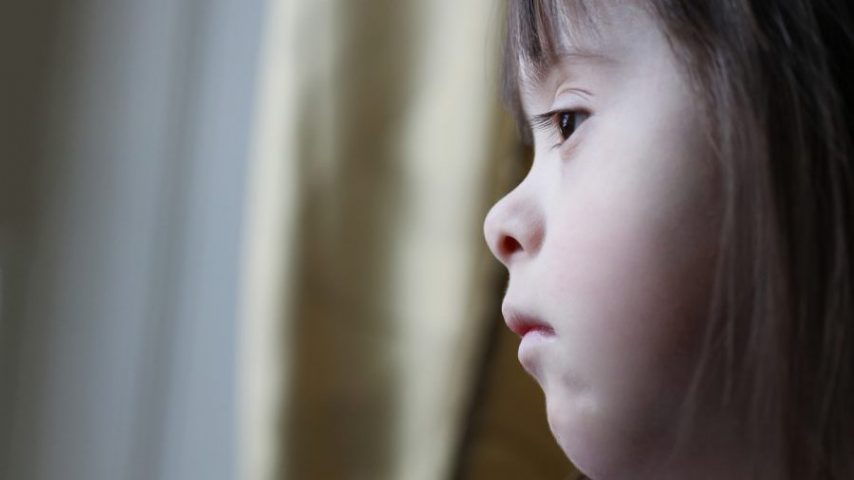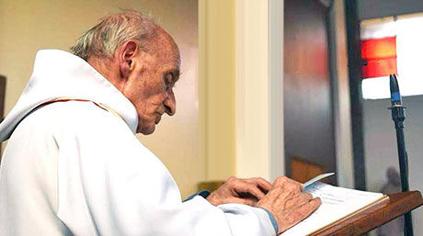Iceland is Wiping Out People With Down Syndrome Before They’re Born

When Christ Becomes Real to Us
August 16, 2017
LIFENEWS.COM: Texas Governor Signs Bill Banning Taxpayer Funding of Abortions
August 16, 2017
By Liberty McArtor, a Staff Writer for The Stream, Aug. 16, 2017
 “In Iceland Down syndrome is on the verge of being eradicated,” CBS anchor Reena Ninan said Monday night. For a second, it sounded as if the cure for some disease had been discovered at long last. The reality is far more sinister. Ninan continued, “and it’s due in large part to the widespread use of genetic testing.”
“In Iceland Down syndrome is on the verge of being eradicated,” CBS anchor Reena Ninan said Monday night. For a second, it sounded as if the cure for some disease had been discovered at long last. The reality is far more sinister. Ninan continued, “and it’s due in large part to the widespread use of genetic testing.”
Genetic testing for what? Down syndrome.
Wiping Out a Group of People
Since prenatal screenings for Down syndrome were introduced in Iceland in the early 2000s, 100 percent of women whose babies screen positive for Down syndrome have had abortions.
CBS traveled to Iceland and released their “CBSN: After the Assignment” report Monday night. Titled “Disappearing Down,” the segment is catching heavy blowback from pro-lifers.
Pregnant women are not required to take the screening, CBS reports. But Icelandic law does mandate that they be informed of the option. A spokesperson for Landspitali University Hospital says the majority of women choose to have the screening.
But the test is only right 85 percent of the time. That is, 15 percent of the time the test returns a false negative. So about two children with Down syndrome are born every year in Iceland.
One of those children, 7-year-old Agusta, was born to Thordis Ingadottir. When Ingadottir was pregnant with Agusta, her screening test came back negative for Down syndrome. Now, even though she supports legal abortion, she defends the rights of people with Down syndrome.
“What I’m criticizing is that the government is making this a policy,” Ingadottir told CBS reporter Elaine Quijano. “A policy about directing to women not to have this pregnancy.”
All That’s Left Are Tiny Footprints
But counselor Helga Sol Olafsdottir sees it differently. She works at Landsplitali, where she advises women whose unborn babies have screened positive for Down syndrome.
In the video report, Olafsdottir walks Quijano to the hospital room where abortions take place. She even shows the camera a memento from one previous abortion — a prayer card.
The card includes notes about the aborted baby, including the date of its death and its weight. Below are two tiny ink footprints.
In Iceland, 100 percent of women whose babies screen positive for Down syndrome have abortions.
The card in the video report shows that at the time of abortion, the baby, whose black footprints stand out starkly on the off-white paper, weighed 56 grams, or about 2 ounces. That means the unborn baby was probably between 14 and 15 weeks gestational age.
Olafsdottir says some women hold their aborted babies after the procedure. Others even have a priest perform a ceremony.
Unlike in America, people in Iceland don’t view abortion as murder, Olafsdottir tells CBS. “We look at it as a thing that we ended,” she explains. “We ended a possible life that may have had a huge complication … preventing suffering for the child and for the family.”
Happy Faces Banned
But do all people with Down syndrome really suffer?
Advocates for their rights have rejected that idea. Every year on World Down Syndrome Day (celebrated annually on March 21), Down Syndrome International releases videos from all over the world. The videos show people with Down syndrome in various countries and communities. They feature individuals asking their governments to fully recognize their rights. (Watch 2017 videos from around the world here.)
A similar video launched in France in 2014 for World Down Syndrome Day. Produced by the organization Coor Down, the video shows multiple children and young adults with Down syndrome describing their happy lives.
But the video was banned in France. The ban was upheld by France’s State Council last November. Seeing happy people with Down syndrome was “likely to disturb the conscience of women who had lawfully made different personal life choices,” the council said. They were referring to women who chose to abort babies with Down syndrome.
Other nations are not far behind Iceland’s 100 percent Down syndrome abortion rate. CBS reports that in France, 77 percent of women whose unborn baby is diagnosed with Down syndrome abort. In Denmark, 98 percent. In the United States, 67 percent.
Only Valuable For What They Bring?
Later in CBS’ video report, Olafsdottir explains that many parents worry about what Down syndrome will look like for their child down the road. When they are little they are cute, she admits. But for parents in limbo, an “18-year-old boy with Down syndrome plus other problems, is not, maybe, a good thing,” she says.
The video then cuts to another family with two children with Down syndrome. One is a teenage boy. A woman, presumably the mother, notes that he is not like his sister — a smiling young girl shown playing with family members. “He has autism.”
“These are the things that do factor into a parent’s decision whether or not to continue the pregnancy,” Quijano narrates in the video.
“It is really science versus nature,” Kacey Cherry, a producer of “Disappearing Down” said. “Do we want to eradicate all these illnesses, all these abnormalities, all these disabilities from our society? Or what do these disabilities, what do these individuals, what do these people bring for the world we live in?”
Lacking from Cherry’s statement, it seems, is the value those “individuals” inherently have as human beings — not just in what they may or may not “bring for the world.”
_______________
Liberty McArtor is a Staff Writer for The Stream. She holds a bachelor’s degree in journalism from Patrick Henry College and previously worked in Washington, D.C. as a radio producer for WMAL’s weekend talk show and at First Liberty Institute in Plano, Texas. Liberty resides in the Dallas-Fort Worth area with her husband and their beloved cat. Follow Liberty on Twitter @LibertyMcArtor.
stream.org/iceland-is-wiping-out-people-with-down-syndrome-before-theyre-born/




